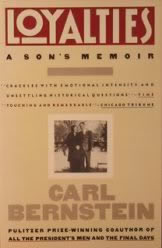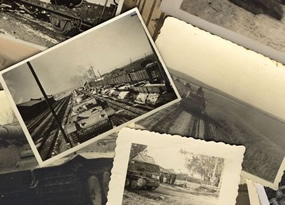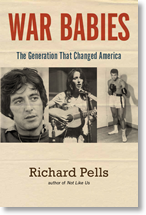For those war babies who were teenagers in the 1950s, the ominous images of Joseph McCarthy—in newspaper photographs and newsreels, and on television—were deeply imbedded in their consciousness and remembrances. Judy Collins recalled that her father hated McCarthy for ruining people’s lives. Faye Dunaway learned that many of her professors at the Boston University School of Fine and Applied Arts had worked in Hollywood or on television shows, but had been blacklisted for refusing to answer HUAC’s questions about whether they were members of the Communist Party. Nor were they willing to identify
those they knew of having attended Party meetings.
My own mother allowed me in the spring of 1954 to stay home from school so I could watch the Army-McCarthy hearings on television. She believed, correctly, that I would learn more from watching Senator McCarthy’s brutal performance than from anything I might be taught in class. Barney Frank’s parents felt the same way; he too remained home to watch the hearings. The drama of the hearings, especially the confrontation between McCarthy and Joseph Welsh, was riveting. Nothing matched them in intensity until the Senate Watergate hearings, broadcast on television in 1973.
 Yet no one among the war babies experienced the effects of McCarthyism more personally than Carl Bernstein. In 1989, Bernstein published a memoir called Loyalties about his parents’ ties to the Communist Party and his own recollections of how much his entire family was hounded by the FBI in the 1950s. His parents were not thrilled that their son was delving into their political past, and his father refused to read the book. But they did answer his questions about what they had done and why.
Yet no one among the war babies experienced the effects of McCarthyism more personally than Carl Bernstein. In 1989, Bernstein published a memoir called Loyalties about his parents’ ties to the Communist Party and his own recollections of how much his entire family was hounded by the FBI in the 1950s. His parents were not thrilled that their son was delving into their political past, and his father refused to read the book. But they did answer his questions about what they had done and why.
Although Bernstein’s parents had withdrawn from Communist activities and meetings in the late 1940s, they did not officially leave the Party because they felt their departure would have been disloyal. For this, they paid a heavy price. They were purged from the labor movement to which they had given most of their time and energies during the 1930s and the war years, and were ostracized by their former friends (those who were blacklisted in Hollywood also found their friends avoiding them in the years of their exile).
Nevertheless, Bernstein’s parents continued to engage in left-wing politics, notably during the trial and imprisonment of Julius and Ethel Rosenberg. Bernstein recalled that the Rosenberg case was a constant topic of dinner-table conversation, and that his parents served on committees to exonerate the couple or at least have their death sentences commuted. On June 19, 1953, Bernstein and his parents spent the entire afternoon marching in front of the White House pleading for clemency. But nothing worked. On the night of June 19, at 8:00 p.m., the Rosenbergs were electrocuted (I recall that it got very quiet in my house when the news came over the radio that the Rosenbergs were dead). Bernstein himself cried hysterically at the death of the Rosenbergs. Yet he was also angry that his parents seemed to be risking their own lives; if the Rosenbergs could be jailed and executed, he feared, then so could his mother and father.
In fact, Bernstein’s parents were under persistent surveillance by the FBI throughout the late 1940s and early 1950s. Two agents even showed up at Bernstein’s Bar Mitzvah, though how his reading of the Torah could be regarded as dangerous was unknown both to Bernstein and the agents. In 1954, Bernstein’s mother was summoned to testify before HUAC. She was an “unfriendly” witness, in the parlance of the time, because she declined to name the names of her former associates in the Communist Party. Bernstein’s father explained to his son that one took the Fifth Amendment in order to protect one’s friends, that this was the ultimate symbol of trustworthiness.
Eventually, in 1962 during the Cuban missile crisis, Bernstein was able to read the FBI files on his parents. He discovered that there was no information in the files that identified his parents as subversive or seditious to the United States. Clark Clifford, President Truman’s closest adviser, later told Bernstein that Truman loathed Joseph McCarthy, and that Truman’s loyalty oath program and Attorney General’s list were just ways of neutralizing his political opponents on the right as well as justifying his anti-Communist foreign policy.
Still, Bernstein admitted in his book that he was exasperated at his parents for their commitment to a Communist movement that was dishonest, vicious, and (under Stalin) murderous. But at the end of his memoir, Bernstein reminded his readers that he had “tried to learn what happened in our family, and to set it down. In so doing,” he confessed, “I may or may not have committed an act of disloyalty. My mother and father never did.”
Bernstein’s memoir offered a harrowing portrait of what it was like to be the target of investigations and harassment in the Truman and Eisenhower years. So the break-ins and enemies list during Watergate seemed to Bernstein all-too-familiar. For Bernstein, the crimes of the Nixon Administration appeared to be a replay of the inquisitions during the McCarthy era, inquisitions that he had witnessed as an adolescent.
Yet for all the lives that HUAC and McCarthy wrecked, McCarthyism itself barely impinged on the culture of the 1940s and 1950s. Painters, architects, novelists, playwrights, and social critics felt little constraint in their work. On the contrary, they contributed to a cultural and intellectual efflorescence that shaped the war babies’ values and view of the world.
War Babies: The Generation That Changed America is now available online at Amazon.com

